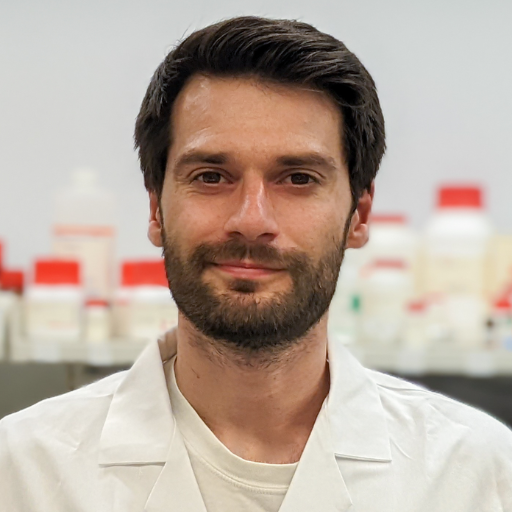Dysfunction of the Regulation of Cerebral Blood Flow in Alzheimer Disease

Principal Investigator
Antoine Anfray, PhD
Weill Medical College of Cornell University
New York, NY, United States
About the Research Project
Program
Award Type
Postdoctoral Fellowship
Award Amount
$200,000
Active Dates
July 01, 2022 - June 30, 2025
Grant ID
A2022003F
Goals
The goal of my project is to investigate how ApoE4, a major genetic risk factor for Alzheimer disease, induces a dysfunction of the regulation of blood flow in the brain.
Summary
Accumulating evidence suggest that early alteration in the blood flow in the brain is an important contributing factor to Alzheimer’s disease (AD). Individuals with apolipoprotein E e4 (ApoE4), a leading genetic risk factor for AD, have reduced blood flow to the brain; however, the underlying mechanisms are unknown. Therefore, the aim of this project is to study the brain blood flow dysfunction caused by ApoE4 with the ultimate goal of identifying new pathways that could be used to develop new drugs for the prevention and treatment of dementia.
Unique and Innovative
The concept that perivascular macrophages could be both the source and target of ApoE4 around penetrating blood vessels support the idea of a potential and previously unrecognized cell-autonomous pathogenic role of brain resident macrophages. Furthermore, we will use a novel mouse (Mrc1CreERT2) to conditionally target perivascular macrophages, allowing us to test our hypotheses with a cellular specificity not previously attainable.
Foreseeable Benefits
The proposed study will fill a knowledge gap. We already know that neurovascular dysfunction contributes to the development of Alzheimer disease, but the cellular and molecular mechanisms responsible are still unknown. The proposed experiments will identify these cellular and molecular mechanisms and raise the possibility that perivascular macrophages could be therapeutic targets to counteract the neurovascular dysfunction observed in individuals with the ApoE4 genotype.
Grants
Related Grants
Alzheimer's Disease Research
Partnership with Molecular Neurodegeneration Open Access Journal
Active Dates
July 01, 2010 - June 30, 2015

Principal Investigator
Guojun Bu, PhD
Partnership with Molecular Neurodegeneration Open Access Journal
Active Dates
July 01, 2010 - June 30, 2015

Principal Investigator
Guojun Bu, PhD
Alzheimer's Disease Research
Identifying Women-Specific and Men-Specific Risk Factors for Alzheimer’s Disease
Active Dates
July 01, 2022 - June 30, 2024

Principal Investigator
Gael Chetelat, PhD
Identifying Women-Specific and Men-Specific Risk Factors for Alzheimer’s Disease
Active Dates
July 01, 2022 - June 30, 2024

Principal Investigator
Gael Chetelat, PhD
Alzheimer's Disease Research
Mitochondrial Prodrug to Treat Repeated Mild Traumatic Brain Injury
Active Dates
September 08, 2021 - December 31, 2023

Principal Investigator
Patrick Sullivan, PhD
Mitochondrial Prodrug to Treat Repeated Mild Traumatic Brain Injury
Active Dates
September 08, 2021 - December 31, 2023

Principal Investigator
Patrick Sullivan, PhD



